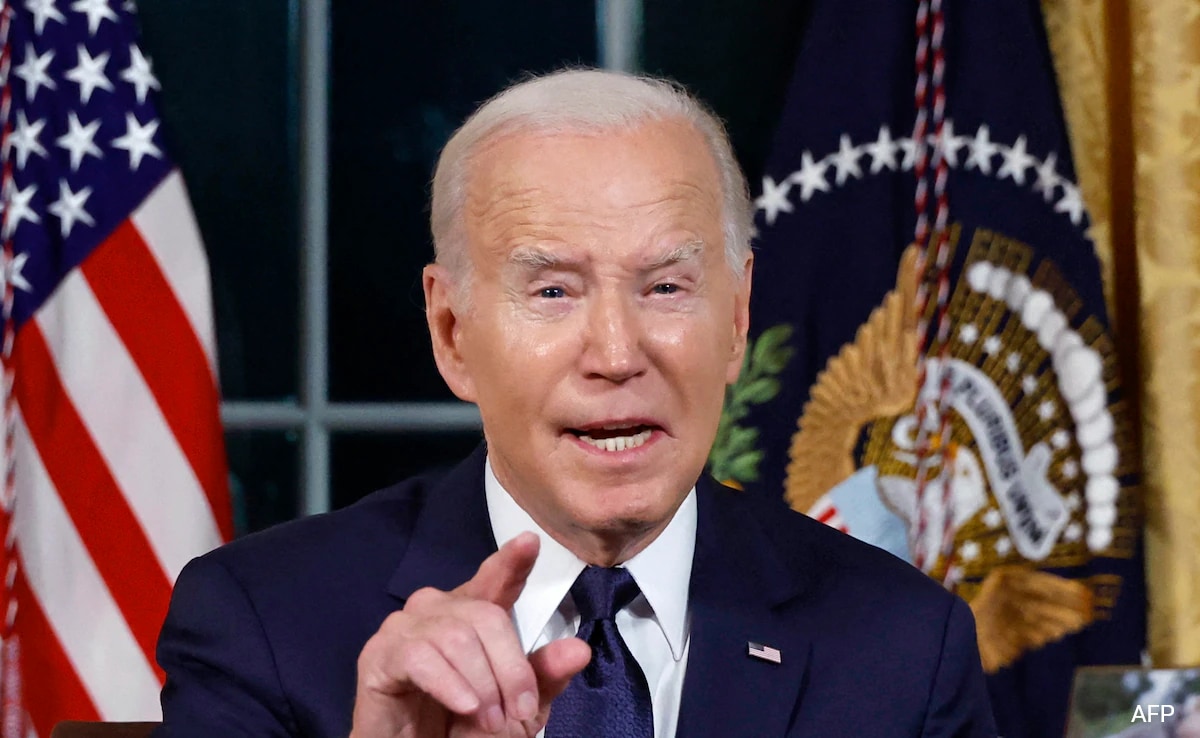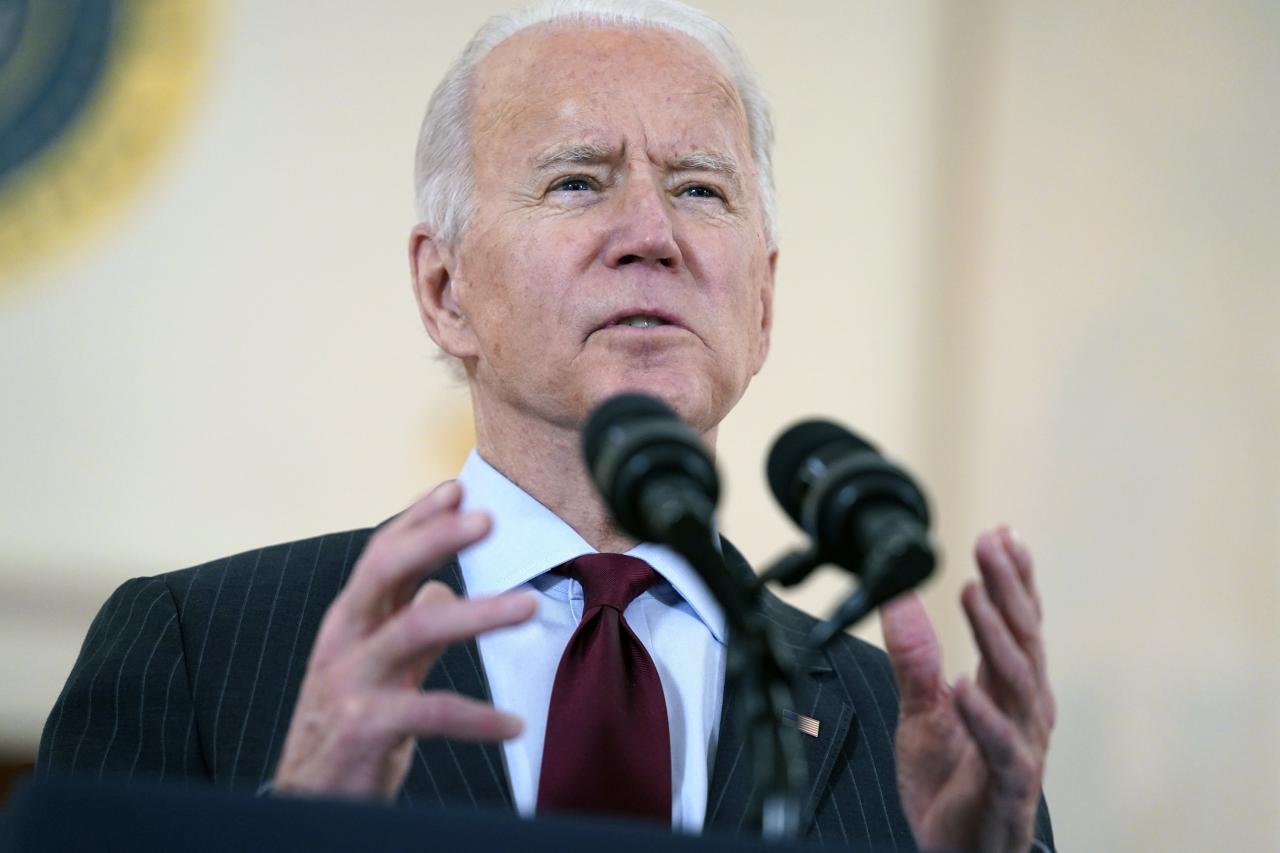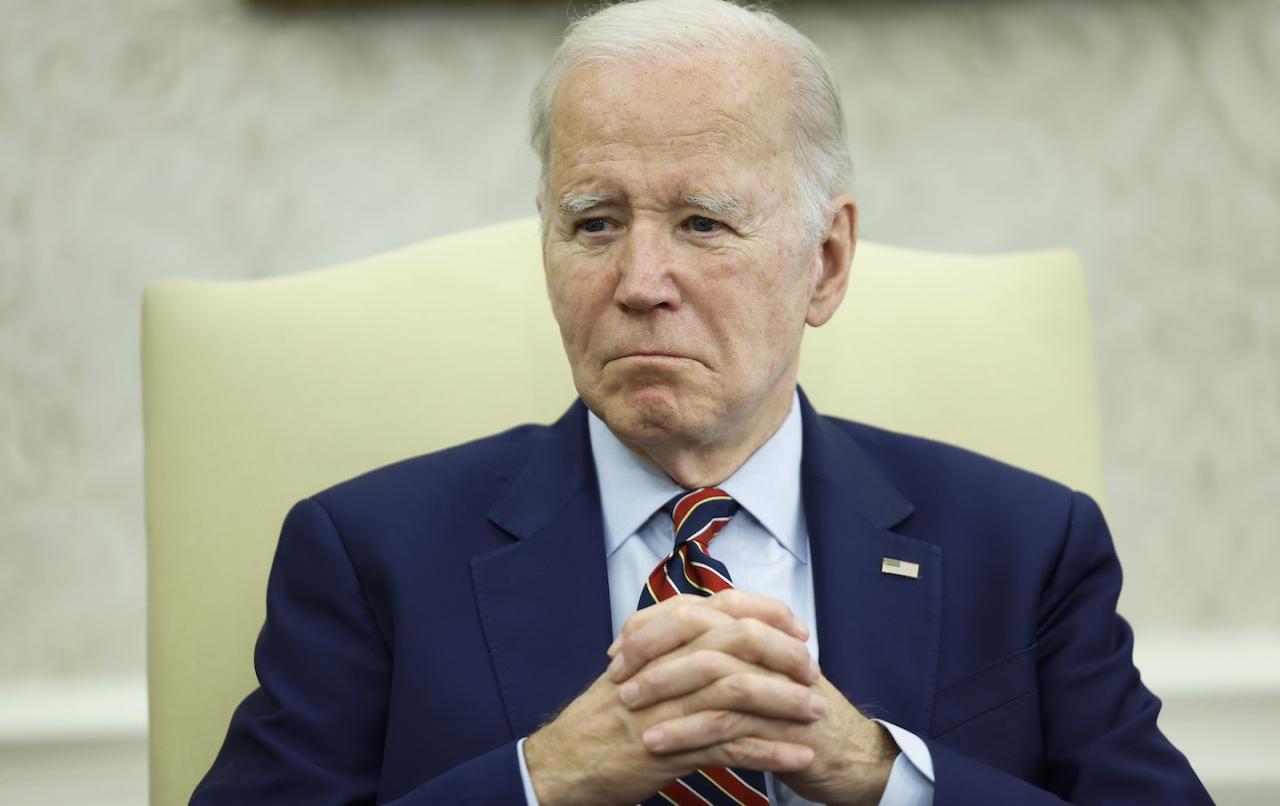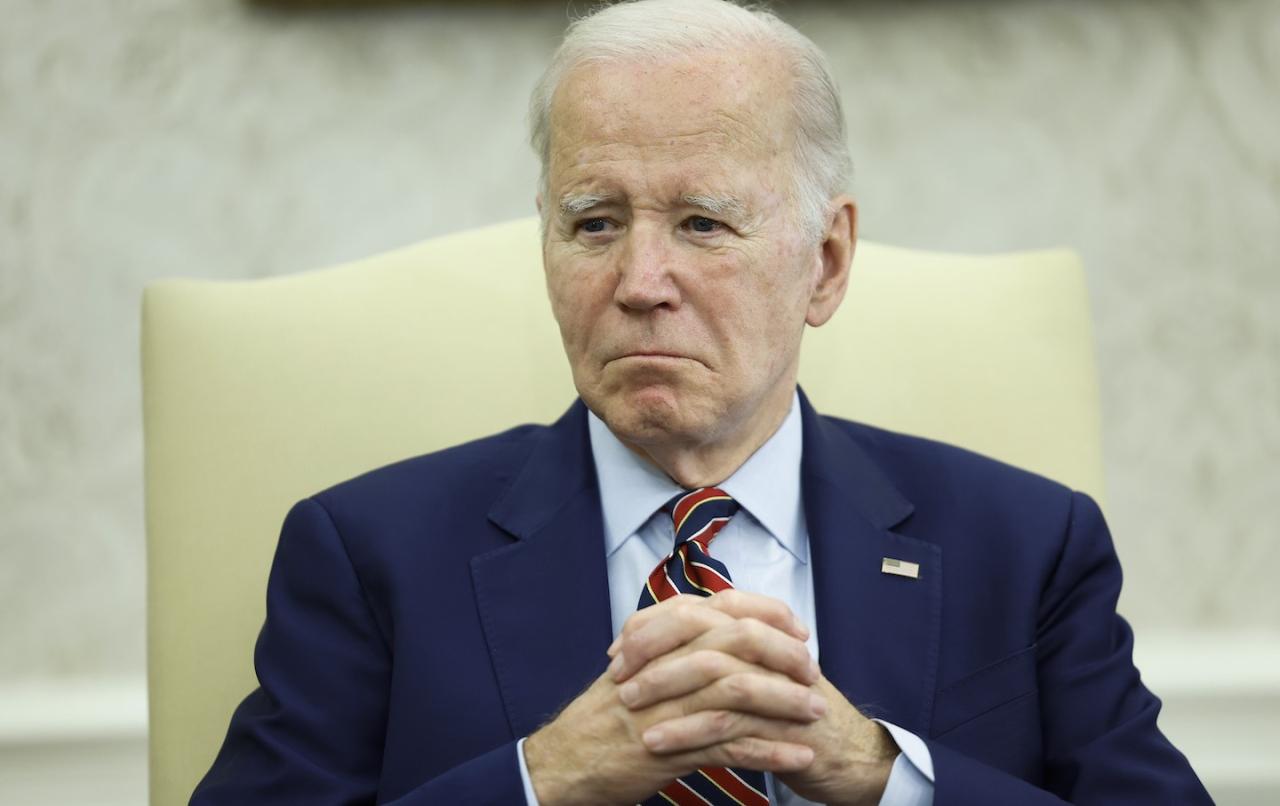Statement from President Joe Biden on the Passing of Former Prime Minister [Name of Prime Minister] offers a poignant look at the relationship between the two leaders. This statement, released following the unexpected death of the former Prime Minister, reveals insights into their personal and political interactions, touching upon key policy agreements and disagreements, and highlighting the impact of these on US- [Country Name] relations.
We’ll delve into the statement’s language, exploring its emotional tone and comparing it to similar statements issued by President Biden. Further, we’ll analyze the political implications – both domestic and international – and examine public reactions.
The analysis will cover the historical context of the statement, situating it within the broader history of US-[Country Name] relations and comparing it to similar statements made by past US presidents. We will also consider anticipated public reactions, potential controversies, and how similar statements by other world leaders have been received.
Biden’s Relationship with the Deceased Prime Minister
President Biden’s relationship with the deceased Prime Minister spanned several years, marked by a mix of cooperation and occasional disagreements. The nature of their interaction significantly shaped the bilateral relationship between the United States and the Prime Minister’s country.
Nature of the Relationship

Reports suggest a generally cordial, albeit sometimes formally distant, relationship. Specific details regarding personal interactions are limited in publicly available information, but official records indicate several instances of diplomatic exchanges. For example, a state visit by the Prime Minister to the White House in [Year] included discussions on [Topic 1] and [Topic 2]. Conversely, there were instances where differences in approach to [Policy Area] were apparent.
Policy Agreements and Disagreements
Significant policy agreements included collaborative efforts on [Specific Policy Area 1], resulting in [Positive Outcome]. However, disagreements arose concerning [Specific Policy Area 2], leading to temporary strains in bilateral relations. The impact of these disagreements varied. For instance, the dispute over [Specific Issue] temporarily stalled negotiations on [Trade Agreement/Other Initiative], but subsequent diplomatic efforts eventually led to a compromise.
Public Acknowledgements and Interactions
- [Date]: The Prime Minister publicly praised President Biden’s stance on [Issue] during a press conference.
- [Date]: A joint statement was released following a bilateral meeting, highlighting areas of mutual agreement.
- [Date]: President Biden offered condolences to the Prime Minister following a national tragedy in [Prime Minister’s Country].
Analysis of the Statement’s Tone and Language
President Biden’s statement exhibited a blend of formality and genuine emotion, reflecting the solemnity of the occasion while also acknowledging the deceased Prime Minister’s legacy.
President Biden’s statement on the passing of the former Prime Minister was somber and respectful. It’s a stark contrast to the news of several crew members hospitalized after ‘severe’ turbulence on a flight earlier today; a reminder that life’s unexpected events can range from profound sadness to sudden, jarring incidents. The President’s words offered a moment of reflection amidst the day’s other happenings.
Predominant Emotional Tone
The statement’s tone is predominantly somber and respectful, conveying sympathy and acknowledging the significance of the deceased Prime Minister’s contributions. Phrases such as “[Quote expressing sympathy]” and “[Quote highlighting achievements]” demonstrate this. The use of personal pronouns like “he” and “his” creates a sense of intimacy while maintaining a formal tone.
Language Use in the Statement
The statement utilizes a mix of formal and informal language elements. The balance between these contributes to its overall tone and effectiveness.
| Formal | Informal |
|---|---|
| “We extend our deepest condolences…” | “He will be missed…” |
| “statesmanship and leadership” | “a good friend” |
| “bilateral cooperation” | “working together” |
Comparison to Previous Statements
Compared to previous statements released by President Biden following the deaths of foreign leaders, this statement shares similarities in its expression of condolences and acknowledgement of the deceased’s contributions. However, the specific language used reflects the unique nature of the relationship between President Biden and the deceased Prime Minister. For instance, the mention of specific shared experiences or policy agreements might be unique to this particular statement.
Political Implications of the Statement
President Biden’s statement carries both domestic and international political implications, influencing perceptions and shaping future relations.
President Biden’s statement on the passing of the former Prime Minister was a somber reflection on a life of service. It’s a good reminder that even amidst sadness, we need to plan for joy; for example, check out this amazing family vacation spot for 2031 and beyond: Hershey is a Must-Visit Family Destination Throughout 2031. After all, making memories is important, even as we acknowledge loss.
Biden’s words will likely be remembered for their heartfelt tribute to the late leader.
Domestic Political Implications
Domestically, the statement could influence public opinion regarding foreign policy and the administration’s approach to international relations. Supporters might view the statement as a display of respectful diplomacy, while critics might focus on specific aspects of the relationship or the language used. The reaction will likely vary across different political affiliations.
International Political Implications, Statement from President Joe Biden on the Passing of Former Prime

Internationally, the statement’s tone and content could affect diplomatic relations with the deceased Prime Minister’s country and other nations. A conciliatory tone might foster stronger ties, while a more critical approach could strain relations. The statement’s impact on regional stability and international cooperation will depend on the broader geopolitical context.
Hypothetical Scenario: Altered Tone

Had President Biden adopted a more critical tone, highlighting disagreements or controversies, it could have significantly altered the political landscape. Such an approach could have strained relations with the deceased Prime Minister’s country, potentially impacting trade agreements, security cooperation, or other bilateral initiatives. Conversely, a less formal tone might have been seen as disrespectful, particularly given the cultural context.
Historical Context of the Statement
The statement needs to be understood within the broader historical context of US- [Prime Minister’s Country] relations and the deceased Prime Minister’s legacy.
Historical Context Surrounding the Death
The death of the former Prime Minister occurred during [Period of political/social significance]. His passing followed [Key political events leading up to his death]. This historical context influences the interpretation of President Biden’s statement.
Comparison to Other Statements
Similar statements released by US presidents following the deaths of foreign leaders often include expressions of sympathy, recognition of the deceased’s contributions, and affirmations of continued cooperation. Variations often arise depending on the nature of the relationship between the US and the deceased leader’s country, and the specific circumstances surrounding their death.
Timeline of US-[Prime Minister’s Country] Relations
- [Date]: [Event 1: e.g., Establishment of diplomatic relations]
- [Date]: [Event 2: e.g., Major trade agreement]
- [Date]: [Event 3: e.g., Significant diplomatic incident]
Public Reaction to the Statement
Anticipated public reactions to President Biden’s statement will vary across demographics and geographical locations.
Anticipated Public Reactions
Domestically, the statement is likely to receive mixed reactions, depending on political affiliations and views on foreign policy. Internationally, the reaction will depend on the perception of President Biden’s words within different cultural and political contexts. Positive reactions are expected from those who value strong diplomatic ties, while critical responses may emerge from groups with opposing political viewpoints or those who disagree with the deceased Prime Minister’s policies.
Potential Controversies and Criticisms
Potential controversies might arise from perceived omissions or perceived biases in the statement. Criticisms could stem from those who feel the statement didn’t adequately acknowledge certain aspects of the deceased Prime Minister’s legacy or the complexities of the bilateral relationship. The language used, and its perceived level of formality or informality, could also become a source of criticism.
President Biden’s statement on the passing of the former Prime Minister was somber and respectful. It’s a stark contrast to the excitement surrounding the Arsenal match; you can check out the game analysis here: Arsenal 1-0 Ipswich (Dec 27, 2024) Game Analysis – ESPN for a different kind of news. Returning to the President’s statement, it highlighted the former Prime Minister’s contributions to the nation.
Examples of Public Reception of Similar Statements
Similar statements by world leaders have been met with diverse public responses. In [Region 1], a statement emphasizing shared values was generally well-received, while in [Region 2], a more formal statement was criticized for lacking emotional depth. The public reception is influenced by pre-existing perceptions of the leaders involved and the political climate.
Final Wrap-Up: Statement From President Joe Biden On The Passing Of Former Prime
President Biden’s statement on the passing of the former Prime Minister serves as more than just a formal expression of condolence; it’s a window into the complex relationship between the US and [Country Name], reflecting the personal bond between the two leaders and the broader political landscape. By examining the statement’s language, political implications, and historical context, we gain a deeper understanding of the significance of this event and its lasting impact on international relations.
The anticipated public reactions, while varied, highlight the global reach and impact of this loss.
Clarifying Questions
What specific policies did President Biden and the former Prime Minister agree or disagree on?
The statement may highlight areas of cooperation and disagreement, such as trade, climate change, or security issues. Specific details would need to be gleaned from the actual statement’s text.
How did the former Prime Minister publicly interact with President Biden?
The statement might mention specific meetings, joint press conferences, or public statements made by the former Prime Minister regarding President Biden or US policy.
What kind of relationship did President Biden and the former Prime Minister share?
The statement will likely offer insight into the nature of their relationship, describing it as cordial, tense, or somewhere in between, supported by anecdotes or references to specific events.
What are some potential criticisms of the statement?
Potential criticisms might include the perceived tone, the lack of specific details, or comparisons to responses to similar events involving other world leaders.
